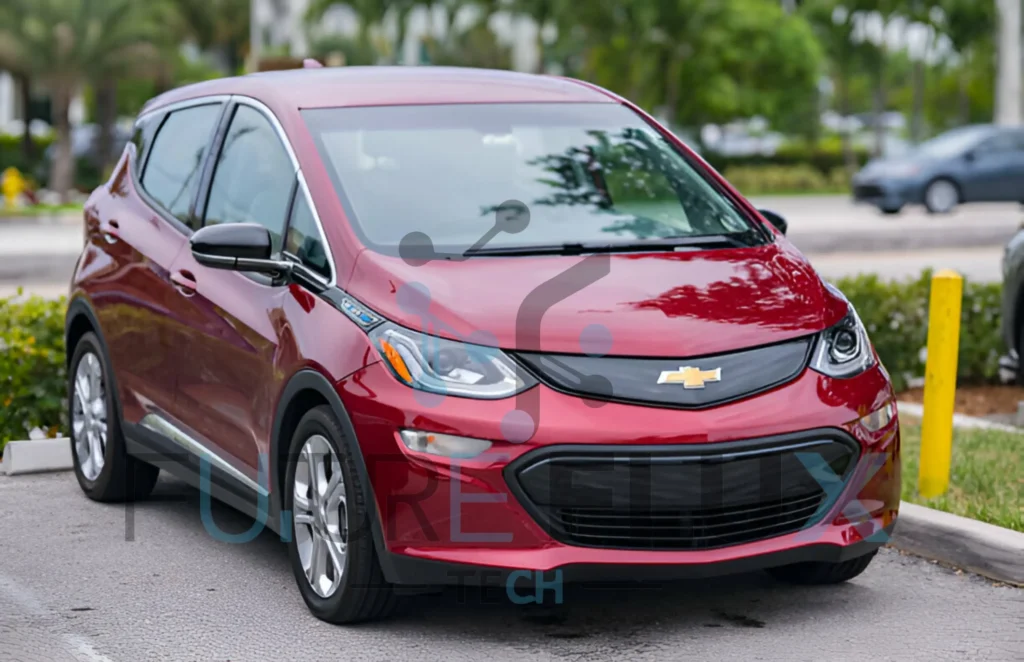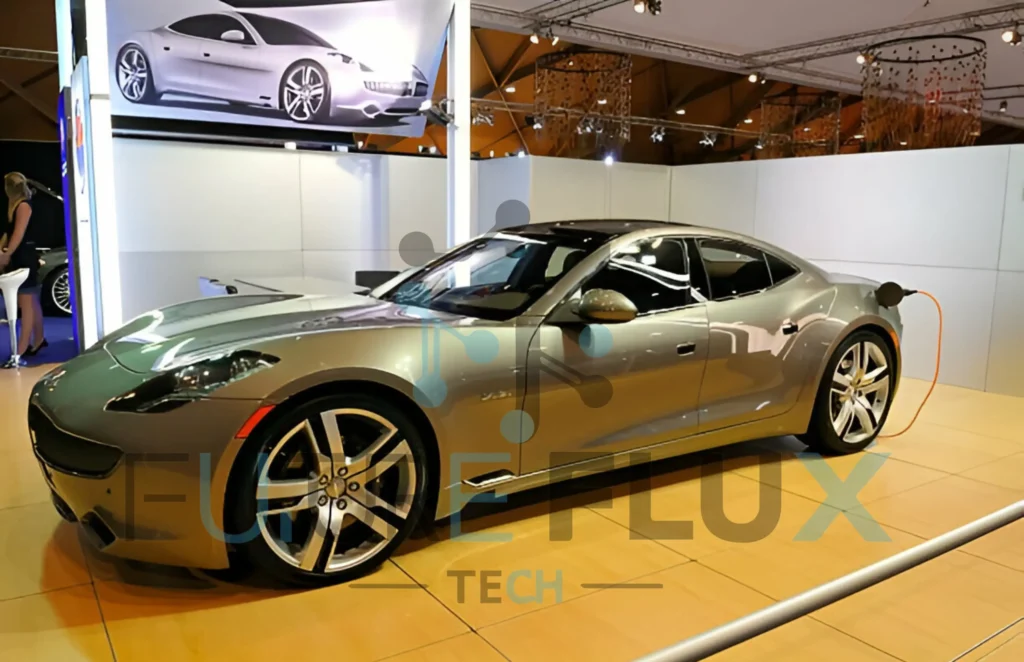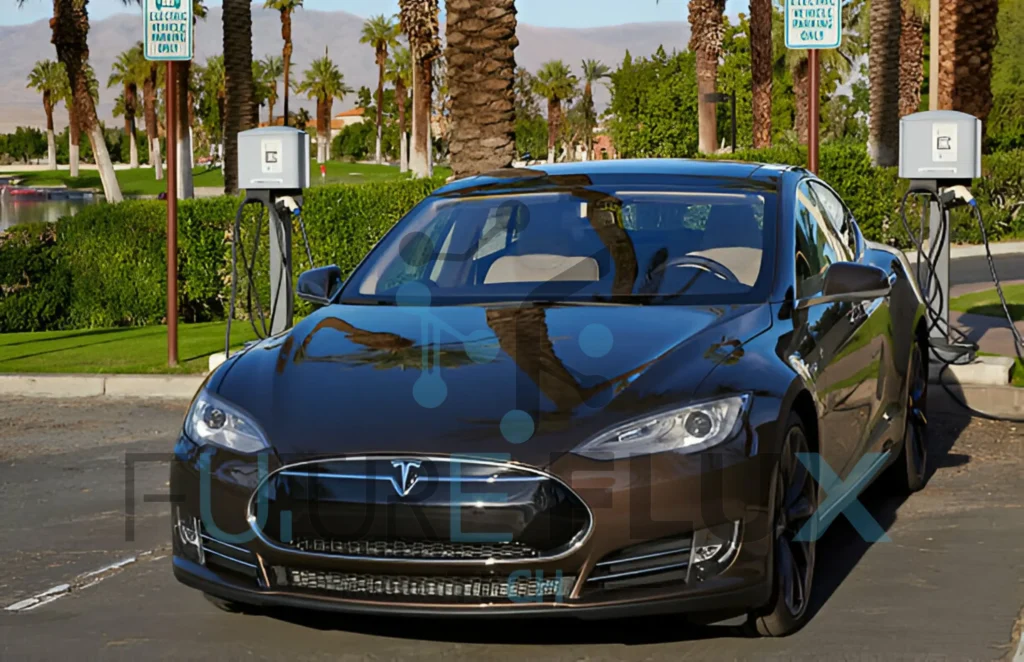When EVs became popular as the best alternatives to gas cars, electric car safety hazards concerned many EV owners. There were several reports regarding plug-in electric vehicle fire incidents. Despite such incidents, EVs are still being mass-produced. Their eco-friendliness might keep them in good books, but their hazards must be addressed. The lithium batteries are mini-bombs that might explode due to overheating. However, the reason behind fire-related Plug-in EV safety concerns is still unclear. Some blame it on the batteries, while others call it faulty manufacture. Let’s unravel the mystery behind fire incidents related to EVs.
What causes Plug-in Electric Vehicle Fire incidents?
Researchers were baffled to know how these eco-cars are now the cause of fires. Therefore, they conducted several experiments on their batteries, trying to find the culprit. PHEVs (Plug-In Hybrid EVs) have been tested for flammability. In one experiment, the researchers got brand new PHEVs, and their batteries were ignited. The reason was to evaluate EV battery fire risks and reduce their hazards. The results were not too shocking. The batteries caught fire after 60 minutes of ignition.
Moreover, the batteries released a white smoke that caused gas-phase explosions. This indicates that the smoke consisted of combustible gases. Possibly one of the major Causes of electric car fires and the culprit behind several incidents. Furthermore, the experiment showed that the fire filled the passenger compartment of SUV-type PHEVs more quickly than Sedans. The maximum height of the fire was 3 meters, and the temperature was 843.6 C.
Other speculations indicate that since lithium batteries have liquid substrates, they can be compared with gasoline and fuel. This makes them flammable and can be the real cause of fire incidents, as the Electric vehicle fire statistics suggest. However, their effects are not as deadly as gasoline-induced fires. The reason is that small amounts of flammable solvents are released, which can catch fire. Yet, the effects are dangerous and can be lethal in most cases. These fire incidents raise a question mark on the Safety of electric vehicles and their reliability.
What EV Brands suffered Fire incidents?
Companies are trying their best to make EVs safe and reliable. However, their flammable batteries are still a huge concern. Even big names failed to reduce fire incidents as their EVs caught fire or caused other vehicles to burn. Here are some brands that suffered fire incidents.
1- Chevrolet EV

Chevrolet Bolt had received 110,000 recalls due to multiple fire incidents from 2017 to 2022. However, even after frequent recalls, the company failed to reduce Fire hazards in electric cars. It also installed new batteries and software in their vehicles, which again caught fire. Flooded with complaints, it had to buy back the Bolt EV and advised its customers to park their cars 50 feet away from other cars. This advice is crucial, and those who ignored it suffered great consequences.
2- Fisker Karma

In December 2011, Fisker recalled 239 Karmas that were delivered to the US. The company speculated that its batteries were at fire risk due to a coolant leak. It further clarified that the hose clamps had not been tightened properly which can cause a shortcut if the coolant enters the battery. This is a relevant case related to Lithium-ion battery fires. In 2012, The Frisker Karma was involved in a house fire and burnt other cars. However, the company retaliated and stated that the battery pack was intact. This means the battery had nothing to do with the incident. Lawmakers are still investigating this case.
3- Dodge Ram

Chrysler launched a demonstration program in September 2012. It used 109 Dodge Ram 1500 plug-in hybrids and 23 Chrysler Town and Country plug-in hybrids. However, the program came to an abrupt end as three separate pick-up trucks were damaged as a result of an overheated battery. No casualties or property damage was recorded. Chrysler recalled all the vehicles present in the program. Moreover, the way of preventing electric vehicle fires in the future, was to upgrade the battery packs with newer lithium-ion chemistry.
4- BYD e6

A BYD e6 was hit by a car in May 2012 in Shenzhen, China. The results proved fatal for the passengers as the car hit a tree, killing all three of them. Reports show that the cause of such a tragic incident was probably the vehicle’s battery resembling many plug-in electric vehicle fire incidents. The Chinese investigation team said that the high-voltage distribution box suffered a short circuit, releasing combustible material. That combustible material caught fire including the power batteries. However, the battery pack remained unharmed. They further highlighted that 75% of single-cell batteries are less likely to catch fire.
5- Tesla Model S

Coming up is the shining star of the EV industry, Tesla. The company is known to produce the safest and most reliable EVs. However, 44 known Electric vehicle fire incidents are related to Tesla. These incidents resulted in the deaths of the occupants. On October 1, 2013, a Tesla Model S notified the driver about a problem. The driver had noticed the warning and quickly exited. The driver recalled flames that were coming out of the car’s front. The vehicle then hit some debris and caught on fire. The company confirmed that the battery pack caught fire when a large metal piece from a semi-trailer crashed into one of the battery modules.
6- Zotye M300

The city authorities sprung into action after a fire incident caused by Zotye M300 happened in China. This incident occurred in April 2011, and the M300 was working as a taxi. The authorities decided to cease all electric cabs. They managed to halt 30 E-taxis, out of which 15 were Zoyte M300. Zoyte has been under fire for its faulty battery manufacturing in most Reports of electric car fires. The problems include battery cell leakage and damaged insulation that separates the battery cells from the walls of the aluminium container. There were risks of short circuits that could occur in specific containers.
What Factors cause EV Batteries to ignite?
The reason why EVs are becoming a threat more than a blessing is due to growing EV battery fire risks. The lithium batteries are sensitive to several factors. One wrong move can result in a disastrous situation. Mostly, short circuits caused by improper handling can contribute to such incidents. Moreover, unwanted chemical reactions in the batteries can also cause short circuits. They produce sharp needle-like structures called dendrites on the anode. These dendrites enter the other electrode, causing an internal short circuit. Other factors concerning Lithium-ion battery fires include oxygen release and electrolyte characteristics.
Conclusion
EVs are becoming increasingly popular in America. However, their reliability is still questionable. Their batteries are flammable and have caused several deaths in the US and other parts of the world. Moreover, these batteries are the reason behind most plug-in electric vehicle fire incidents that are happening worldwide. Factors including short circuits caused by chemical reactions or improper handling can ignite the batteries. However, companies are trying to come up with solutions to reduce the flammability of these batteries to make EVs safer for people.
Why did Ford stop making EVs? What’s in-store for the New Hyundai IONIQ 6 Black Edition? Find out more by visiting our blog.
I’m Waqas, an electric vehicle enthusiast and tech writer with over 6 years of experience covering the EV industry. I write in-depth articles, comparisons, and reviews to help readers understand the fast-evolving world of electric mobility. From battery technology to EV launches and charging trends, I aim to make complex EV topics simple, engaging, and informative for everyday drivers and curious readers alike.





